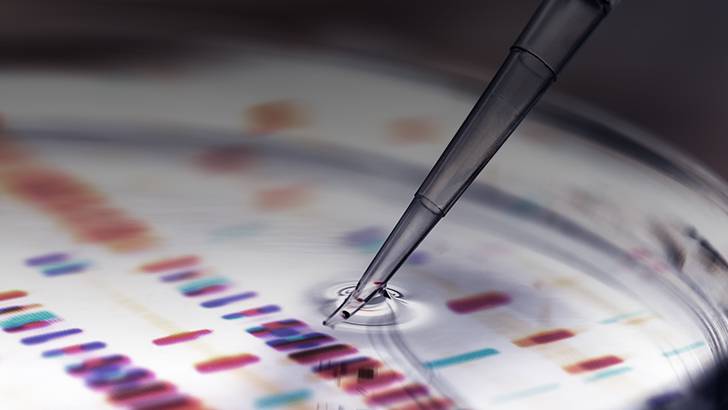There are currently four gene therapy products approved by the FDA, and with the FDA anticipating that there will be many more approvals in the future, how can they continue advancing the field of gene therapy all while ensuring that these innovative products meet their strict standards for safety and effectiveness? Pharmacist Dr. Linda Bernstein breaks down their six new guidance documents.
Medical Program: FDA’s Pursuit in Progressing Gene Therapy While Maintaining Safety
Be part of the knowledge.™We’re glad to see you’re enjoying ReachMD…
but how about a more personalized experience?
FDA’s Pursuit in Progressing Gene Therapy While Maintaining Safety

Announcer:
You're listening to The Drug Report on ReachMD, hosted by Linda Bernstein, Pharm.D., Clinical Professor on the Volunteer Faculty of the School of Pharmacy, University of California, San Francisco.
Dr. Bernstein:
Welcome to The Drug Report. I’m Dr. Linda Bernstein.
Today we will focus on six new guidances issued by the Food and Drug Administration that provide regulatory clarity for product developers regarding manufacturing and clinical development of gene therapy products. They’ve also issued a draft guidance, entitled, Interpreting Sameness of Gene Therapy Products Under the Orphan Drug Regulations. Here are a few introductory statistics about the state of gene therapy.
- There are four gene therapy products approved by the FDA, which insert new genetic materials into a patient’s cells.
- The FDA anticipates many more approvals in the future, as demonstrated by more than 900 investigational new drug (IND) applications for ongoing clinical studies in the gene therapy area.
FDA Commissioner Stephen M. Hahn, M.D. stated, “The growth of innovative research and product development in the field of gene therapy is exciting to us as physicians, scientists and regulators. We understand and appreciate the tremendous impact that gene therapies can have on patients by potentially reversing the debilitating trajectory of diseases…including rare genetic disorders and autoimmune diseases.”
Peter Marks, M.D., Ph.D., director of the FDA’s Center for Biologics Evaluation and Research, supported these remarks: “Scientific development in this area is fast-paced, complex, and poses many unique questions during a product review; including how these products work, how to administer them safely, and whether they will continue to achieve a therapeutic effect in the body without causing adverse side effects over a long period of time.”
The six guidance documents include contributions from many stakeholders to help formulate the modern structure for the development and manufacture of gene therapies. The FDA is trying to advance the field of gene therapy while providing recommendations to help ensure that these innovative products meet their strict standards for safety and effectiveness.
Scientific evaluation of gene therapy requires assessment of highly complex information on product manufacturing and quality. In addition, the clinical review of these products often raises even tougher questions for regulators than assessments of more conventional drugs, such as questions about the duration and persistence of response. These questions often can’t be completely addressed in pre-market trials of a manageable size and length. While some gene therapies have met FDA’s standards for approval, there may still be questions of the duration of the response at the time of marketing authorization. Effective post-market follow-up may be required, such as post-market clinical trials, to advance the field and help ensure that the FDA’s approach encourages safe and innovative treatments.
The FDA is also seeking comment on a draft guidance on interpreting sameness of gene therapy products under the orphan drug regulations. The document illustrates the FDA’s current views on an interpretation of sameness between gene therapy products intended to treat the same disease for the purposes of obtaining orphan-drug designation and eligibility for orphan-drug exclusivity. The FDA will consider the principal molecular structural features of the gene therapy products, which includes transgenes (the transferred gene) and vectors (the vehicle for delivering the transgene to a cell).
The draft guidance has potential positive implications both for product developers and patients by providing insight into the agency’s most current thinking on the sameness of products, and thus, not discourage the development of multiple gene therapy products to treat the same disease or condition. For patients, this policy could help encourage development and approval of multiple treatments, creating a more competitive marketplace.
In summary, the FDA hopes that the policies finalized in these documents will help move forward product gene therapy development. The FDA will continue to work with product innovators, sponsors, researchers, patients, and other stakeholders to help increase efficiency of product development and review, while establishing the regulatory controls required to ensure the safety and effectiveness of gene therapy. The FDA also urges developers of new gene therapy products to make full use of their accelerated programs available for products intended to address unmet medical needs in the treatment of serious or life-threatening diseases. These programs include breakthrough therapy designation, regenerative medicine advanced therapy designation, and fast track designation, as well as priority review and accelerated approval. Developers should try to utilize these programs to help bring the benefits of important advances to patients as soon as possible. To quote the FDA: “We believe our work will help advance innovations in a way that assures their [gene therapy] safety and effectiveness, provides new therapeutic choices to patients and providers and continues to build confidence in this novel and emerging area of medicine.”
For The Drug Report, I’m Pharmacist, Dr. Linda Bernstein.
Announcer:
To access this episode and others from The Drug Report, visit ReachMD.com/drugreport, where you can be part of the knowledge. Thanks for listening.
Related
FDA News Release: FDA Continues Strong Support of Innovation in Development of Gene Therapy Products
Show more
Recommended
Overview
There are currently four gene therapy products approved by the FDA, and with the FDA anticipating that there will be many more approvals in the future, how can they continue advancing the field of gene therapy all while ensuring that these innovative products meet their strict standards for safety and effectiveness? Pharmacist Dr. Linda Bernstein breaks down their six new guidance documents.
Related
FDA News Release: FDA Continues Strong Support of Innovation in Development of Gene Therapy Products
Show more


Facebook Comments